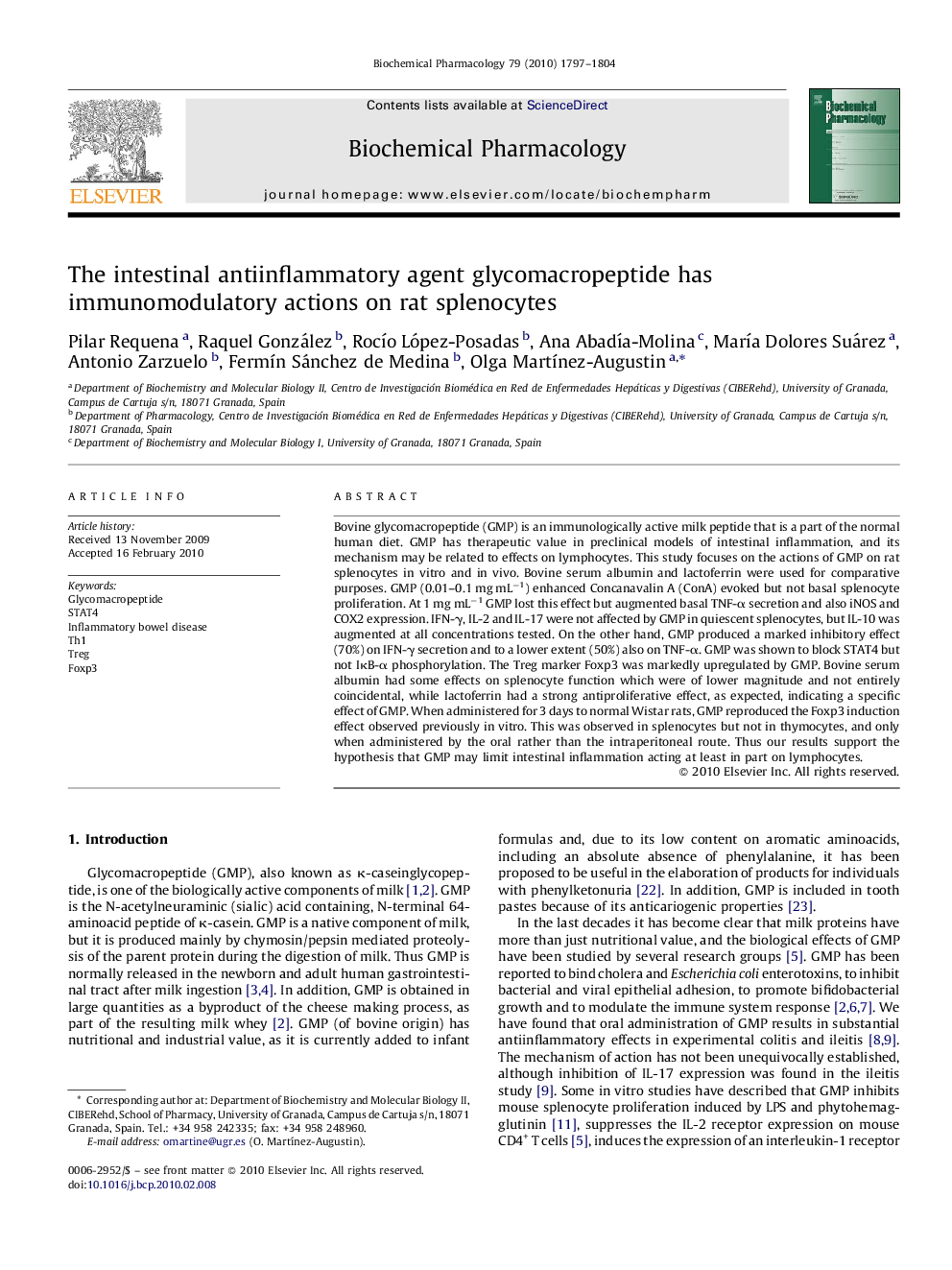| Article ID | Journal | Published Year | Pages | File Type |
|---|---|---|---|---|
| 2513561 | Biochemical Pharmacology | 2010 | 8 Pages |
Bovine glycomacropeptide (GMP) is an immunologically active milk peptide that is a part of the normal human diet. GMP has therapeutic value in preclinical models of intestinal inflammation, and its mechanism may be related to effects on lymphocytes. This study focuses on the actions of GMP on rat splenocytes in vitro and in vivo. Bovine serum albumin and lactoferrin were used for comparative purposes. GMP (0.01–0.1 mg mL−1) enhanced Concanavalin A (ConA) evoked but not basal splenocyte proliferation. At 1 mg mL−1 GMP lost this effect but augmented basal TNF-α secretion and also iNOS and COX2 expression. IFN-γ, IL-2 and IL-17 were not affected by GMP in quiescent splenocytes, but IL-10 was augmented at all concentrations tested. On the other hand, GMP produced a marked inhibitory effect (70%) on IFN-γ secretion and to a lower extent (50%) also on TNF-α. GMP was shown to block STAT4 but not IκB-α phosphorylation. The Treg marker Foxp3 was markedly upregulated by GMP. Bovine serum albumin had some effects on splenocyte function which were of lower magnitude and not entirely coincidental, while lactoferrin had a strong antiproliferative effect, as expected, indicating a specific effect of GMP. When administered for 3 days to normal Wistar rats, GMP reproduced the Foxp3 induction effect observed previously in vitro. This was observed in splenocytes but not in thymocytes, and only when administered by the oral rather than the intraperitoneal route. Thus our results support the hypothesis that GMP may limit intestinal inflammation acting at least in part on lymphocytes.
Graphical abstractFigure optionsDownload full-size imageDownload as PowerPoint slide
